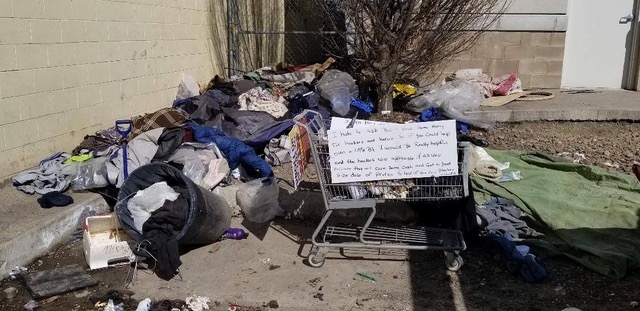
Image Credit: SUBMITTED
April 10, 2019 - 12:00 PM
OPINION
“However beautiful the strategy, you should occasionally look at the results.” — Winston Churchill
PART TWO
There are two essential questions we should ask of the “Housing First” philosophy as it has morphed into praxis here in BC: does it actually work? And what about the impact on the community even if it does? Let’s talk about the first one here, and we’ll get to the second one next week.
Some of you may recall that last week I referenced Dr. Sam Tsemberis, father of the Housing First movement, who popularized the idea in New York during the 1990s and continues to advocate for it today. You may also recall that I argued that what we are doing now in BC to alleviate what at least one service provider called “extreme homelessness” (people living in makeshift camps or on the street) is simply not what Housing First is meant to be, despite the fact that the phrase “Housing First” is frequently referenced by service providers whenever a new shelter or housing unit is introduced. Indeed, the phrase even gets thrown about in the context of Overdose Prevention Sites and free needle programs, not as a meaningful signifier so much as an appeal to authority.
I was extremely gratified to receive an email from Dr. Tsemberis himself. I’ll let him speak for himself:
“Mr. Anderson, you are exactly right that Housing First is often provided as "housing only." If you look at anything I have written about this model you will see that I have always emphasized that providing a home (safety and security) is only the first step, the beginning not the end of the story. Getting a person a place to live is actually the easiest part of the program to operate. But that is not Housing First. A properly operated Housing First program must include a supportive services team including social workers who make house calls. The home visits are mandatory. I would argue as you do, that the real work, the more difficult work of rehabilitation and recovery begins after the person is housed. It is the support and treatment that clients receive after they are housed that accounts for the success of this program. Too often, programs offer housing only without the necessary support and that is NOT what Housing First is about. Thank you for your column.”
What we are doing in BC now – providing free low barrier housing, free food, free clothes, free needles, safe injection sites, and all with no expectations of responsible behaviour – bears no resemblance to the tight, regimented framework Dr. Tsemberis advocates for. And what we are doing is not working for either the extreme homeless population or for the society they live within. The problem is not getting better. It’s getting worse.

Image Credit: SUBMITTED/Scott Anderson
I had a chance to quiz a representative of Urban Matters, a self described purveyor of solutions to “complex social problems,” terminology which generally translates from arcane jargon to pedestrian usage as “problems that we’ll throw taxpayer money at in hopes that they’ll go away.” He drew a correlation between extreme homelessness and low vacancy rates and presented it in such a way as to imply that low vacancy rates caused extreme homelessness.
Now remember we’re not talking about folks whose homelessness may range from staying in paid campgrounds to couch surfing, and who generally seek employment and a chance to rise above their present circumstance. We’re not talking about mom and pop who can’t pay the rent, or the destitute families of the dustbowl years congregating in refugee camps because there simply weren’t any jobs to be had.
We’re talking here about the people who live and sleep on the streets, in cardboard boxes, in makeshift camps, in circumstances not fit for animals, and who have no intention of changing anything. I offered that if I were to draw correlations of that sort, a much clearer correlation – one might even argue causation – appears between the opioid crisis and extreme homelessness or between the closing of our mental institutions and extreme homelessness.
One need not be particularly learned to know that these people are not living in their own filth because the rent is too high; they are doing so because of much deeper, existential personal crises, often involving addiction or mental health issues or both.
A true application of the Housing First programme may well work, but what we’re doing now isn’t working and may well be making the problem worse. It’s bad enough that we’re throwing money at a Platonic shadow of Housing First, but as the shocking movie “Seattle is Dying” asks, if we refuse to even name the problem, how are we ever going to find a solution to it?
— Scott Anderson comments and analysis from a bluntly conservative point of view.
We welcome your comments and opinions on our stories but play nice. We won't censor or delete comments unless they contain off-topic statements or links, unnecessary vulgarity, false facts, spam or obviously fake profiles. If you have any concerns about what you see in comments, email the editor.
News from © iNFOnews, 2019